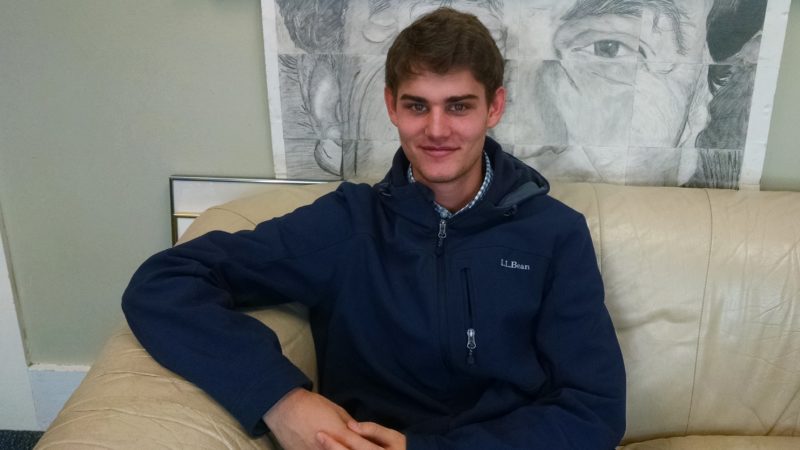Matthew Jarrell ’14 Writes Home from the Collegiate Mock Trial Circuit
I read somewhere once that the biggest fear most people have, even eclipsing fear of death, is that of public speaking. There’s something about having to stand up in front of a large group of people and deliver a statement that is understandable, well-written, eloquent, and engaging that is uniquely frightening. That said, if you can keep the nerves down, master the formula for an effective speech, and memorize thoroughly, public speaking can become something of a routine that gets less scary with practice.
Now imagine this: performing that same routine, but having someone repeatedly interrupt you with an argument about how what you’re saying is wrong. Then, on the spot, you have to come up with a strategy to explain why you’re right. And if it’s decided that you are indeed wrong, you have to completely reorganize your thoughts and keep going without appearing at all flustered. That would be a new level of scary.
Amazingly, there are some incredibly twisted people who do this for fun by signing up for mock trial. Before my time at Waynflete began, I didn’t think I would ever be one of those people. Nonetheless, I have just completed my first semester at Brown University, and my fifth semester of competition on the mock trial circuit. What once was unthinkable has become a favorite activity that I couldn’t imagine leaving behind when I graduated.
As I explained before, mock trial is hard. It’s a chemical compound of countless other pursuits – it’s the intellectual exercise of a debate, combined with the dramatic flair of a theater performance, and the competitive intensity of a sporting event. If you take on the role of a witness in the case, you have to be ready to be shredded on cross examination. If you’re an attorney, you better be able to do the shredding. Whatever your role might be, you have to be well-prepared and flexible. Most importantly, you have to be confident. If you believe that you’re unflappable, chances are you will be.
Caught up in an objection battle with a polished senior adversary recently, it occurred to me just how much my day-to-day life in high school contributed to my ability to do this. At Waynflete, as anyone who has ever gone here will tell you, you can’t hide behind others. From a purely numerical standpoint, the classes are small enough that you will inevitably get called on. When you do, you’re expected to have a thought or a question that furthers the conversation. Teachers here want you to be able to think critically and then express those thoughts in a public setting. I didn’t realize how ingrained in my psyche that instinct had become – until it was put to the test in the intimidating arena of collegiate mock trial.
I owe a major debt of gratitude to Waynflete’s resident mock trial miracle worker Debba as well as all my other teachers and classmates for encouraging me to embody confidence in mock trial and outside of it. Using the skills that Waynflete helps to develop, it’s easy to be confident. That makes both public speaking and everything else a whole lot less scary, more enriching, and more enjoyable.




